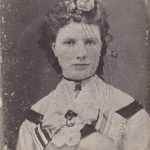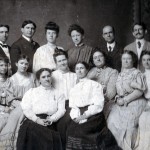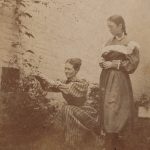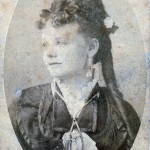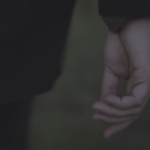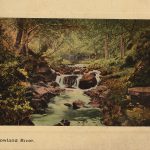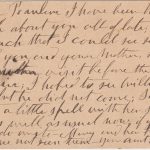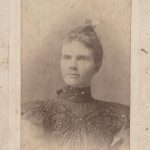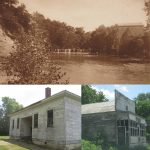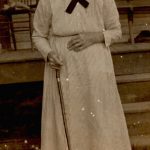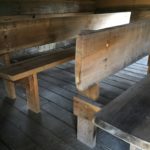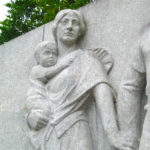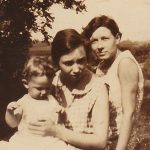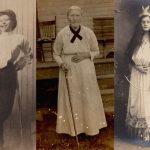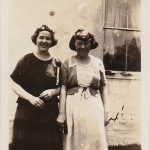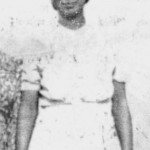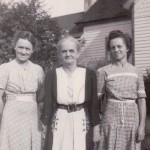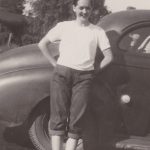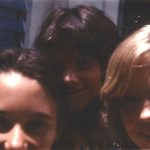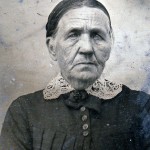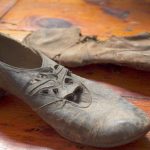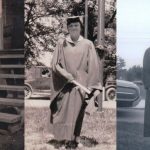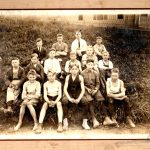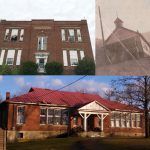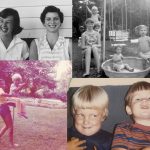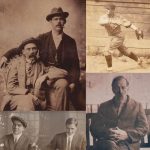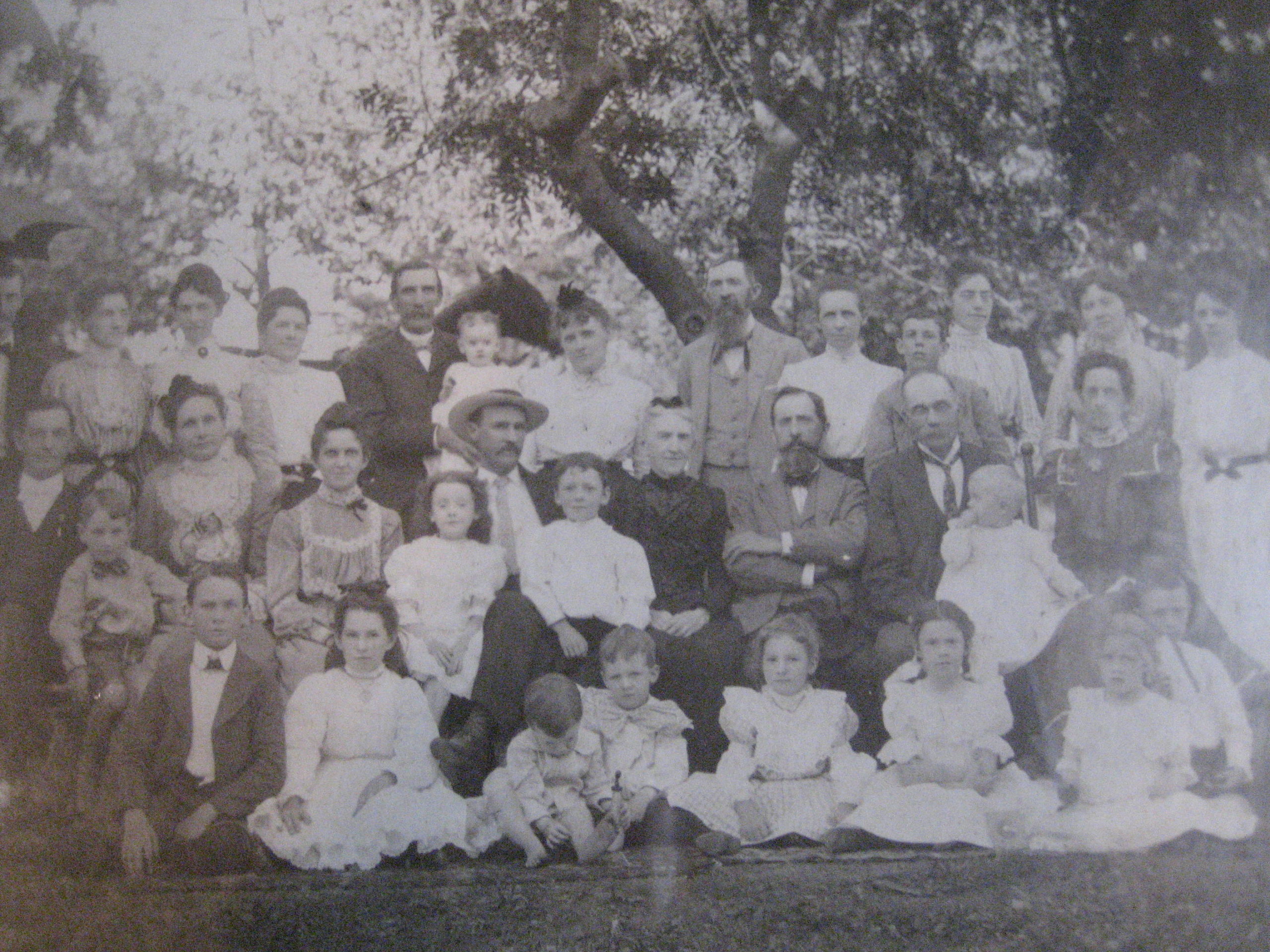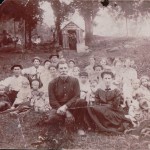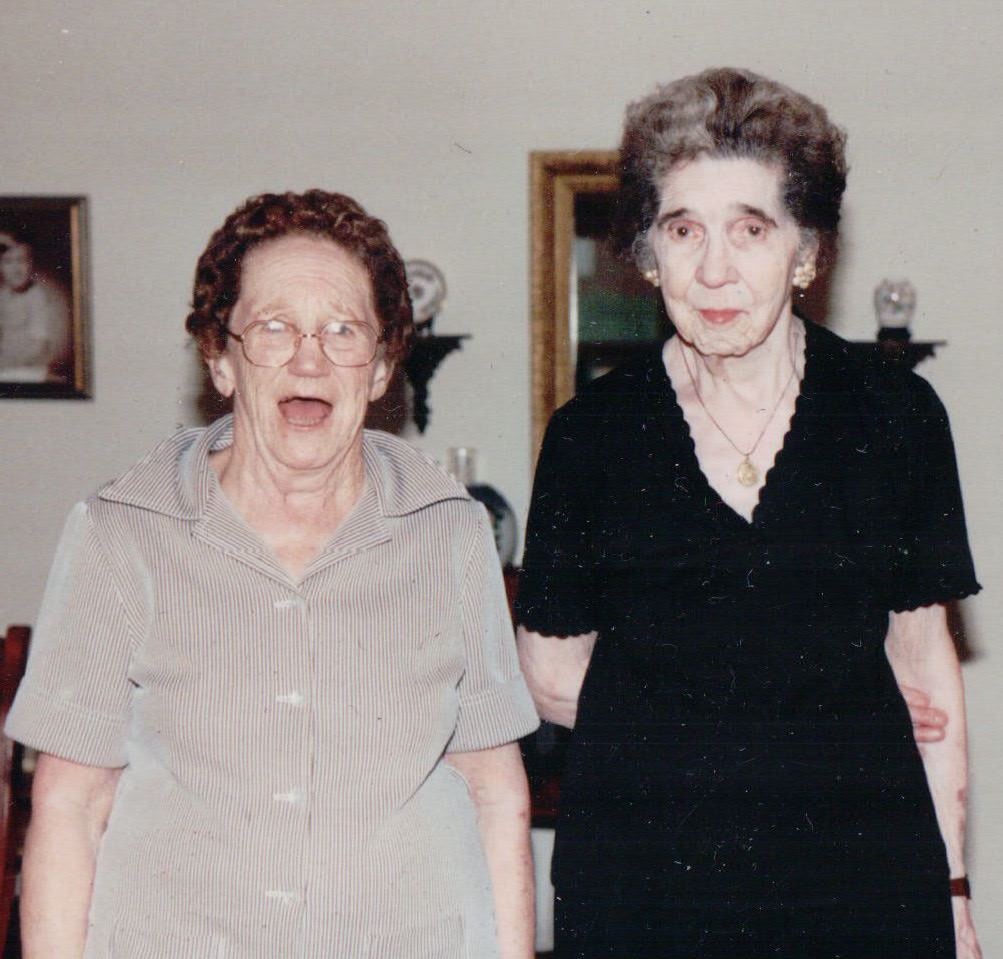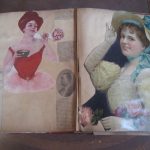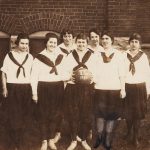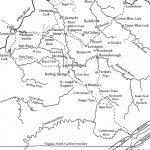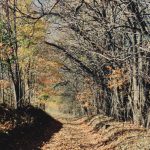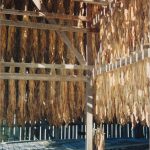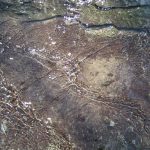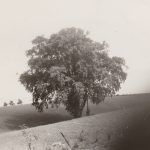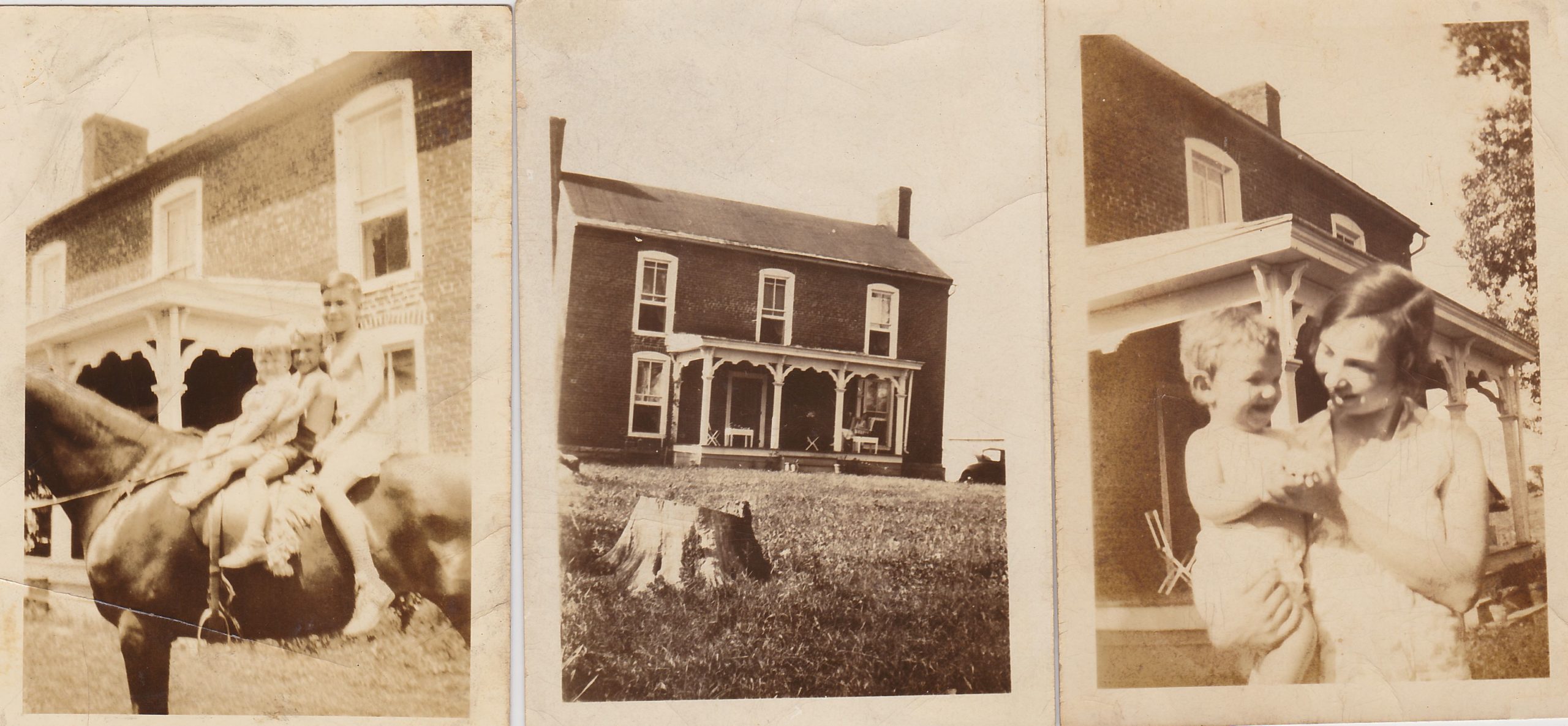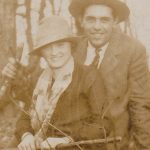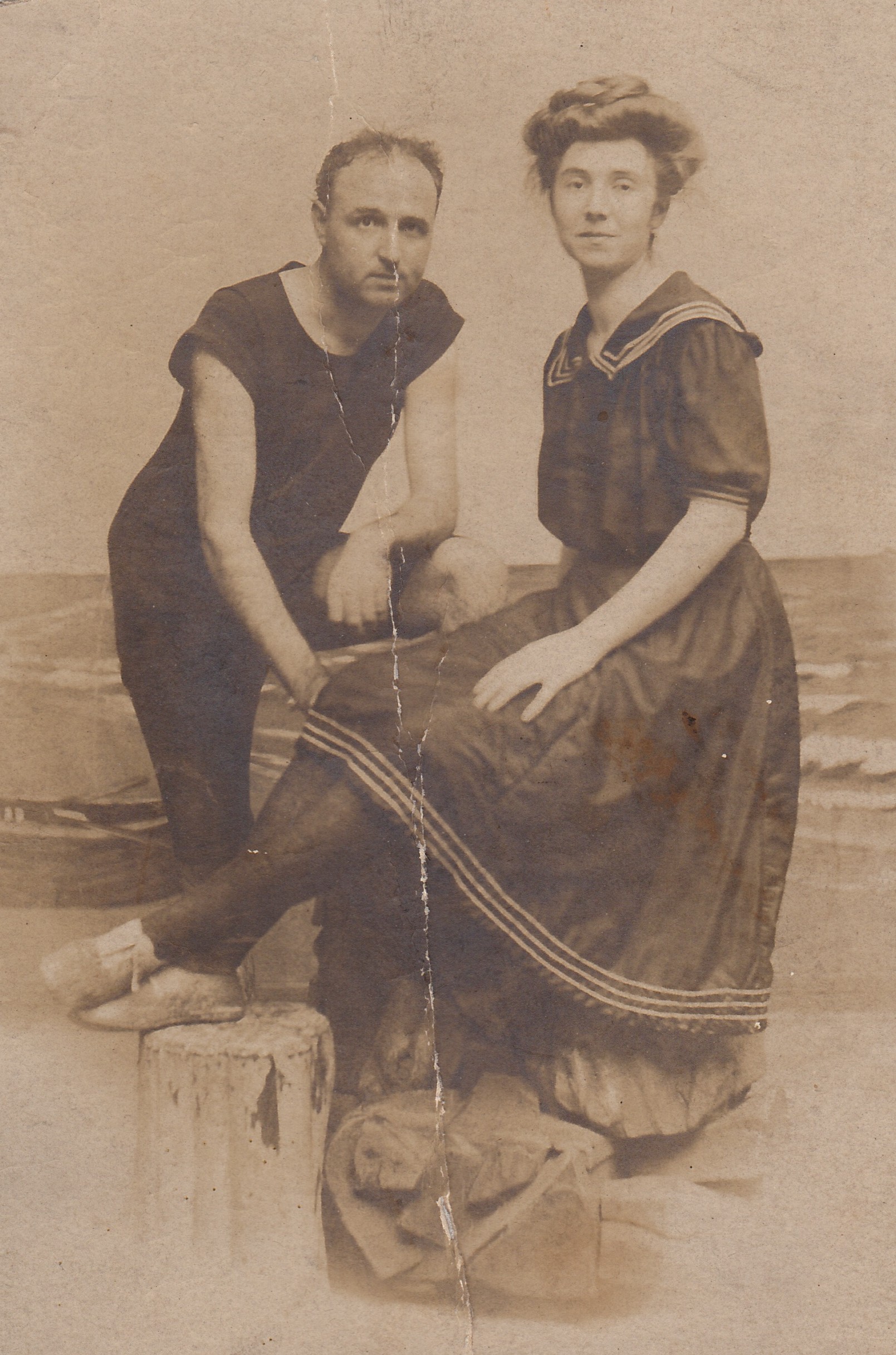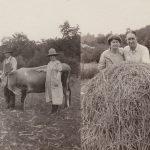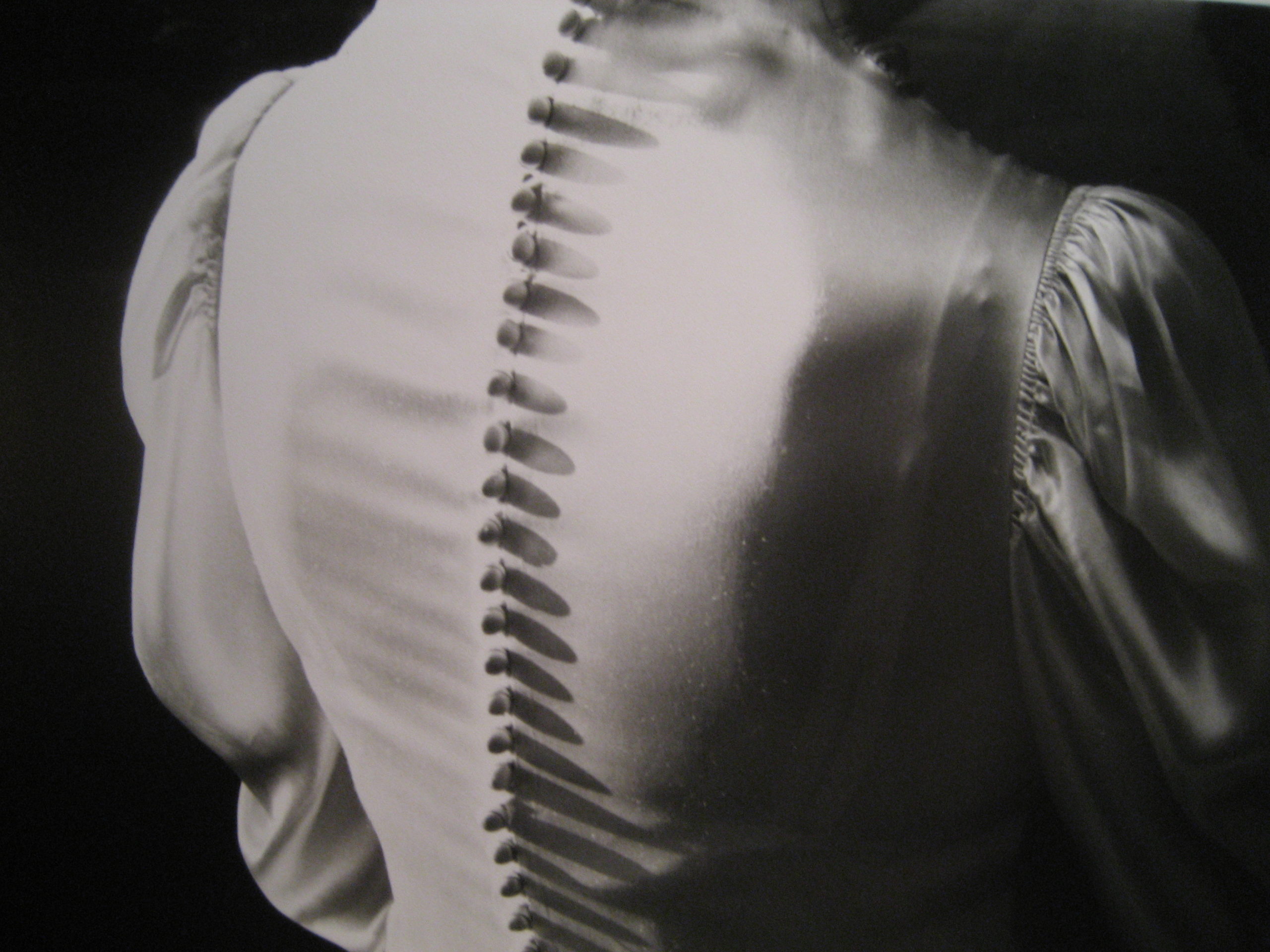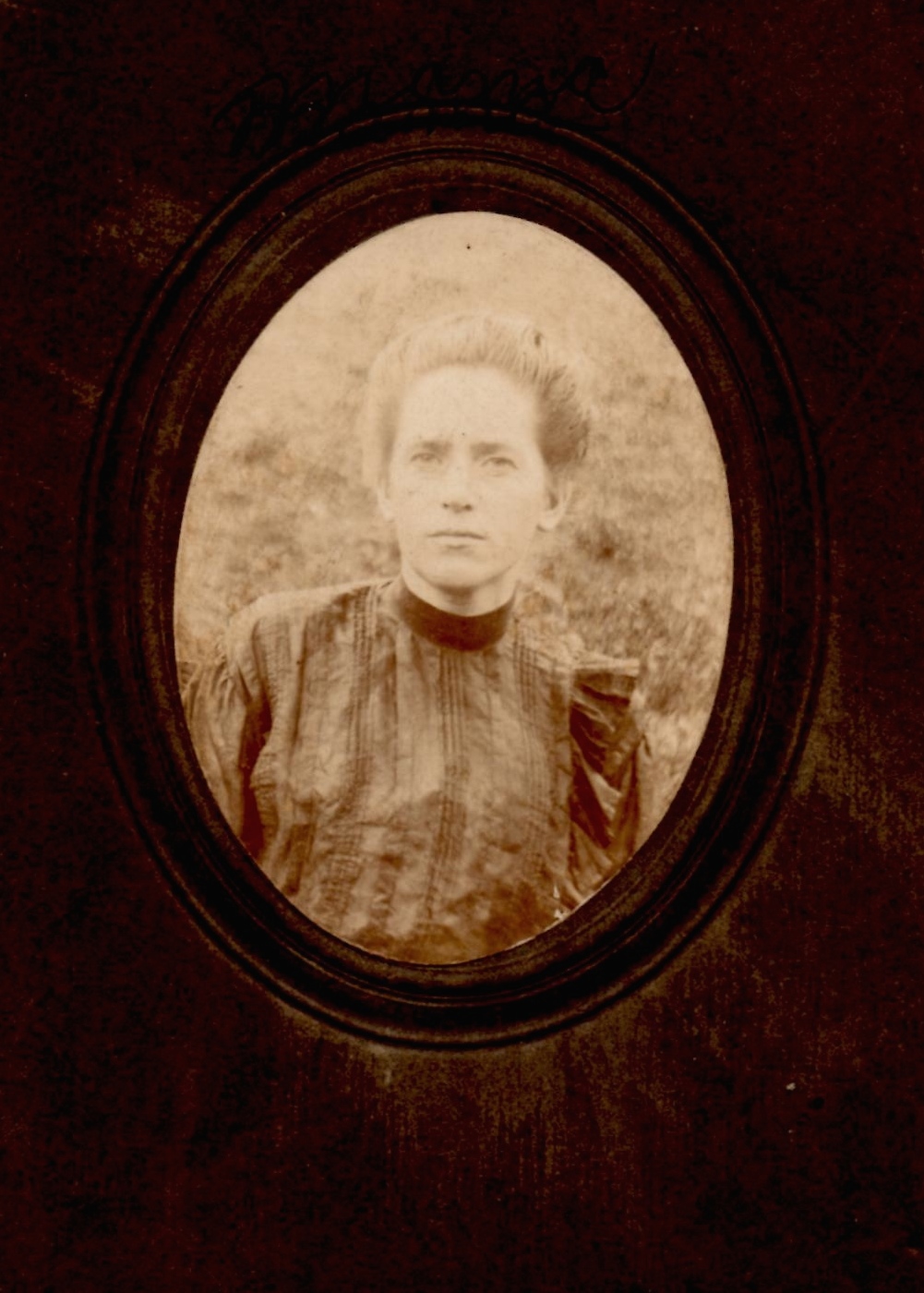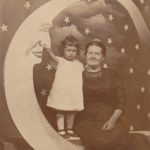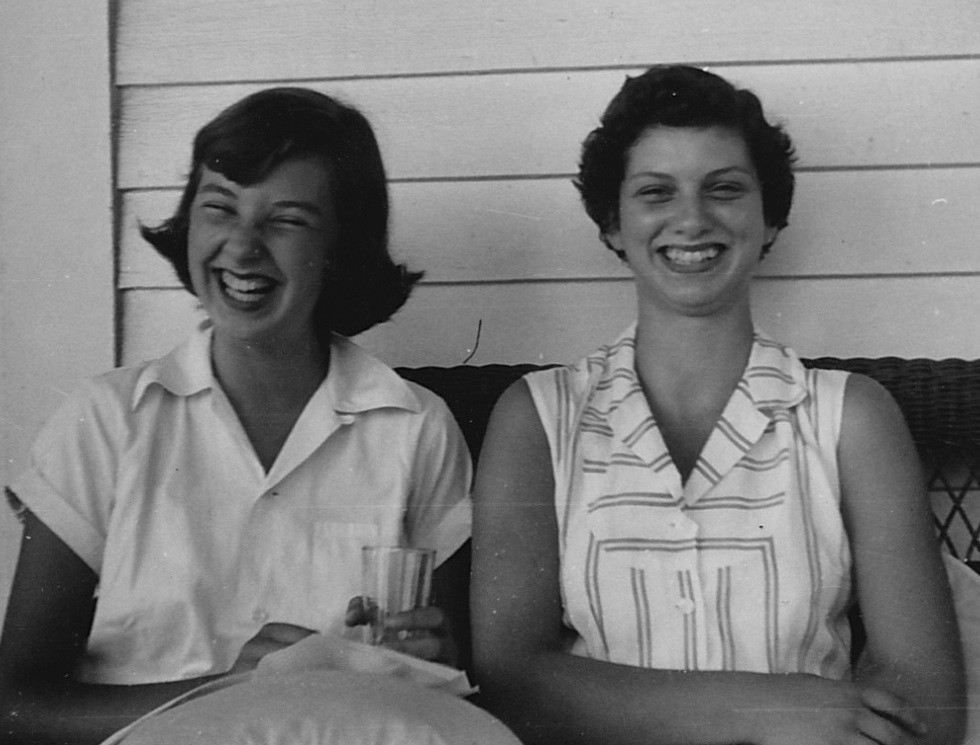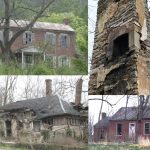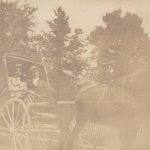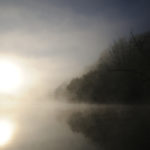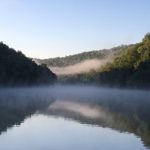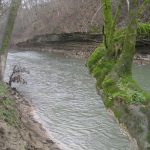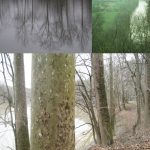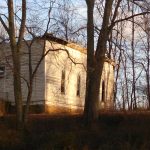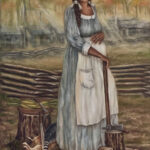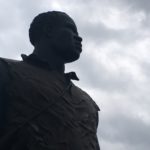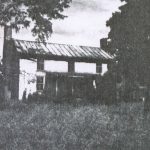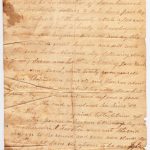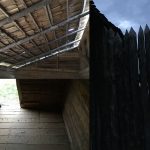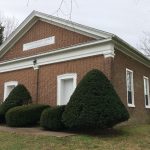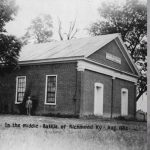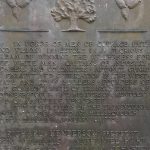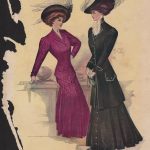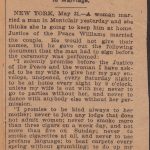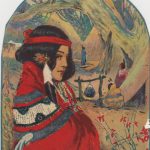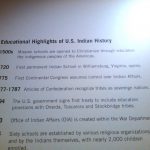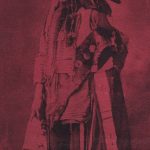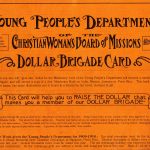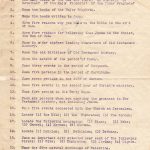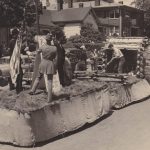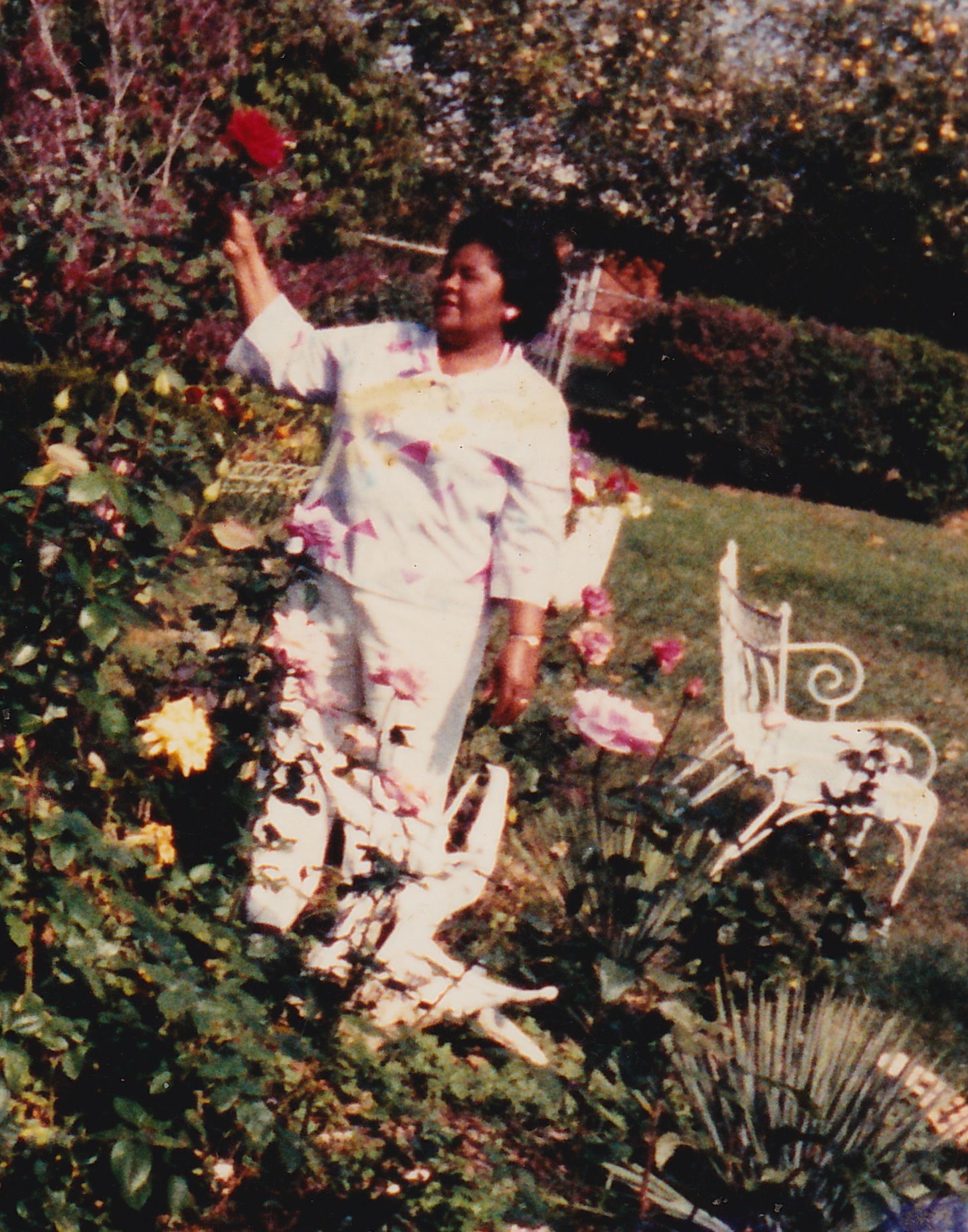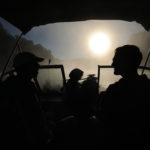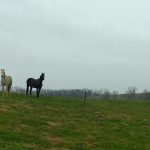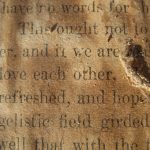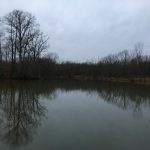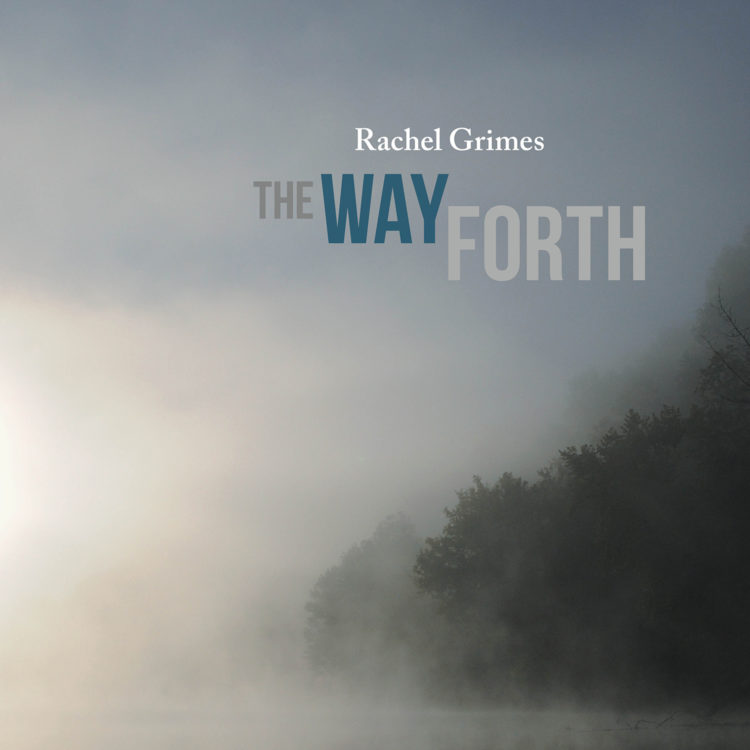
Watch “Finding a Founding Mother” – the story of Dolly in the early days of KY
Read this interview (page 22 of first issue) with Black Scene Millenium about Dolly and her Descendants
Watch a video of April 2021 conversation about violinist, composer, and bandleader Henry Hart (Dolly’s grandson)
Petition for Dolly was a success – thank you!! Read more about the details and see photos HERE
RECORDING ENSEMBLE
Voice: Timbre Cierpke, Joan Shelley, Scott Moore | SATB Choir: SONUS | Narrator: Stephen Webber
Piano: Rachel Grimes | Harp: Timbre Cierpke | Guitar: Nathan Salsburg | Banjo: Sean Johnson
Percussion: Sean Johnson, Jecorey Arthur | Violin: Scott Moore, Erica Pisaturo, Rob Simonds
Viola: Laura De St. Croix, Evan Vicic | Cello: Charlie Patton, Cecilia Huerta-Lauf | Bass: Aaron May
Clarinet: Teddy Abrams | Spoken word: Jecorey Arthur, Martha Neal Cooke, Rachel Grimes,
Joe Manning, Nathan Salsburg, Joan Shelley, Doris Smith, Bettie Wheeler
Recorded by Anne Gauthier at The Kentucky Center and La La Land, Louisville, KY
and at Eastwood Christian Church, Nashville, TN
Mixed by Rachel Grimes and Chris Greenwell at Downtown Recording
Mastered by Bob Weston, Chicago Mastering Service
Length: 63 minutes | Produced with support from The Kentucky Center, Kentucky Foundation for Women, The Puffin Foundation, Owsley Brown Presents, Lueboe Press, Kriech-Higdon Photography, and individual donors
Inspired by a treasure-trove of family documents, photos, and letters spanning several generations, I began in 2016 to research some of the more vexing questions that came to the surface about these people, places, and events. Fueled by intuition, travel to visit family, photographing, and filming present day rural Kentucky life, the research led to many more questions: What is missing? What is not being said here? What did she really think and feel? Primary historical accounts routinely glossed over people without titles or voting rights, and dehumanized most others by referring to them as objects of desire, savages, or slaves. Further examination formed a framework for trying to reconcile Kentucky’s history and how it relates to the westward expansion and settlement of the United States and ultimately how an era of domination, denial, and pain is reflected in the complex culture of today.
A film co-created with Catharine Axley accompanies the musical work for use in live performance.
Work is in progress on a feature length film Along the Way Forth, which includes interviews, music videos, and documentary-style interludes.
Watch videos here
Download the album artwork booklet here
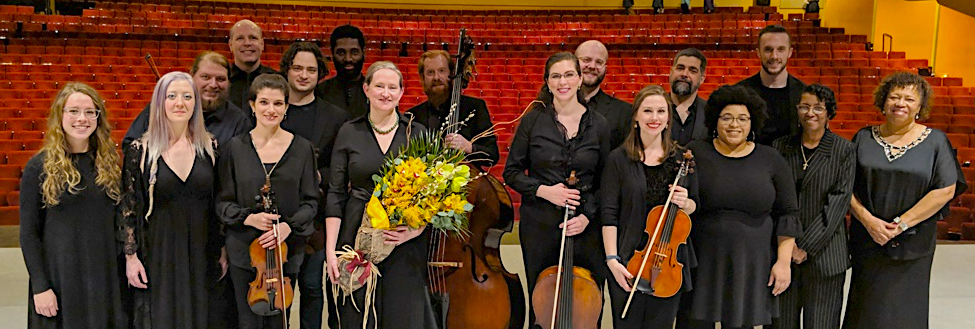
Got Ahold of Me
A current-day Woman wonders why these voices and objects from the past have grabbed her.
There is something
got ahold of me
and it won’t let go
in a stranglehold
There is someone
got ahold of me
and they won’t let go
in a stranglehold
with a bitter undertow
CHORUS:
Stick and stone
knife and gun
lay down your arms
For what battle have you won?
Lay down your arms
untie me (2nd time: and hold me)
Postcard from Pauline
Going back in time - a postcard written by Pauline Lackey, the sister of my great-great- grandmother, to her niece Pauline Grimes - a snapshot of the pace and tone of life in 1888
Sept. 21, 1888
Dear Pauline, I have been thinking so much about you all of late and wishing so much that I could see more of you. Will you and your mother not make us another visit before the winter sets in? Sue has had quite a little spell with her side, but all is well as usual now. If you don’t come, do write - your Aunt Pauline
Patsy
Excerpted from Patsy Treadway personal account - The Winchester Democrat, Friday, October 9, 1896
I am 85 years old today and have been here during three wars: 1812, 1848, and 1860. I am the mother, grandmother, and great-grandmother of 103 children. When just past 18 years old, I was the mother of two children. I carried them with me to the field after milking and getting breakfast, tied them in a fence corner, and cut 12 shocks of corn per day. I have cut wood, split rails, handled the reap hook and cradled in harvest time; sowed, pulled, broke, hackled and swindled flax, spun it and wove it into cloth. I have sheared sheep and made the wool into blankets, lindsey, and jeans. I have done all kinds of work and feel none the worse for it. At the age of 19 I joined the old Lulbegrud Baptist Church under the ministry of Rev. Thomas Boone. I am now a member of Mt. Sterling Baptist Church. This is my last birthday.
Sisterhood of Man
This old, heavy grief and terror deep has nearly drowned me
Broke my legs and tamped my longing voice
My soul is shattered
By any means, my freedom
Darkened meadowland so fortified in a stranglehold
Lay down arms and the truth be told
Ani-yun-wi-ya
By any means, their freedom
Sister mine tell us, is it time, to ease the burden?
Stony heart break wide and flow again
Let us find the way forth
By any means, our freedom (2x)
Red House School
My maternal grandmother Margaret Ruth Baldwin Leedy began her education in a rural one room school house, and later taught in Madison, Harlan, and Lincoln Counties. She completed her education in stages, while working and raising a family. This text is excerpted from a writing assignment from Eastern KY University in 1964 when she finally returned to complete her Bachelor’s degree.
I was born March 4, 1903 near Union City, Kentucky, in Madison County.
My parents had five children in nine years: three boys and two girls.
In 1910, we moved from Union City to Brookstown, which is near Red House. I started in a one room school that was heated by a large coal heater in the middle of the room, with double desks, two or three sitting together in the seat. It had a large recitation bench up in front where we sat when having class.
All eight grades were taught in this room with just one teacher. Most of the time, the teacher made the fires, swept the floors, and straightened up the room before any of the children arrived. Some of the girls and boys in the upper grades would help with the ones in the lower grades.
After graduating in 1921, I taught a three-month spring school at Brookstown. In a spring school, the parents paid the teacher $3 a month for each pupil.
In the fall of 1922, I entered Eastern State Normal School in Richmond to get a Life’s Certificate. I taught the first four grades at Red House School for two years, then taught one year in high school. That year my youngest brother and sister went to school with me, and they graduated that year.
In the fall of 1927, I went to Benham, in Harlan County. There were 130 children in the first grade so the class was divided with two teachers. They were building a new school building and as we didn’t have enough room, one teacher taught half of them from 8:00 to 12:00 and I taught the other 65 from 12:30 to 4:00.
In January 1928, I got married. I finished out that year then quit teaching to raise our family. In 1933, we moved from Harlan County to Stanford in Lincoln County. We have one son and four daughters.
In 1956, I returned to teaching as a Substitute, then in ’58 I taught the first four grades in a two room school in Rowland. In ’59 I came back to Union City to teach in the same building that my mother had begun her teaching career many years ago and in the spring of ’60, they gave me the Principal’s job.
In the fall of 1960 we moved to Union City and in ’62 the school was consolidated with the Red House School to move to the new Daniel Boone School here in Madison County.
I went to summer school, then started teaching the second grade. It was the first school that I had ever had just one grade, with new equipment and many conveniences.
In ’63, I taught twelve days and got sick, so I took a year’s leave of absence. After resting and getting to feel better, I decided to come back to Eastern the second term and hope to get my degree in August.
I feel that we have a good deal in common, as you went to rural school and loved living on a farm in your childhood days. Also, I love boys and girls. If it wasn’t for the love of being with boys and girls, trying to teach them to be good citizens, I wouldn’t be going to school. For at my age, it is very hard to concentrate and learn with the younger generation being so alert.
The Hysterical Society
A romp through the names of people and places that play a part in the storyline. The chorus is the old time fiddle tune “Cumberland Gap”. The title refers to how my paternal grandmother Dorothy Susan Newland Grimes used to jokingly refer to the Lincoln County Historical Society, of which she was a member and President.
Patsy, Matsy, Mary Margaret, Dorcas Alexander
Celia, Dolly, Bessie Ella, Susie, Lizzie, Lula
Margilee and Elsie Jane, and another Margaret
Nancy, Sara, Susan, Philadelphia Deboe
—chorus—
Transylvania, Spotsylvania, Fincastle and Madison
Otter Creek, St. Asaph Creek, Muddy Creek and Tates Creek
Foxtown and Preachersville, Culpepper and Hubble
Walnut Flat and Hazel Patch on the Little Rockcastle River
— chorus—
Colonel This, and Captain That, Nathan, York and Henson
Prather, Pawling, Edward Sterling, Jacques de la Fontaine
Jupiter and Hoy Flournoy, Johann, David, Joseph
Abraham and Isaac on the Hope of Rotterdam
—chorus—
Fussin’ and a fightin’
Spoiled stinkin’ rotten
All came through the Cumberland Gap
Nowhere on Earth
A personal account of a recent drive-by visit to the beautiful place where my father was born in Preachersville, Lincoln County
Not too long ago, I drove by there again.
It was one of those days in the late fall where the sunlight is slanted and bright.
The craggy trees.
The cedars suddenly so obvious.
Fencelines full of leaves.
And the hay and soybeans are honey-colored stubs.
The tobacco is hanging in the barns.
The road’s a little wider than I remember and now some of it is paved pretty nicely.
The rickety bridge is gone.
It’s now just solid concrete and a little side railing.
There’s a better metal bridge over the creek but you can still see where we used to drive through it.
The driveway’s not gravel anymore.
It’s a nice, paved, serpentine path up the hill where you can’t see where you’re going and it looks like you’re driving into the sky.
When you get to the top, it looks like it always did.
There’s the silo, .. but there’s no trailer anymore.
There’s that little barn, the equipment shed, and the brick house - it’s beautiful - it’s been renovated.
That’s where you were born.
I’m grateful they saved it.
I want to keep going - I drive all the way to the far gate, towards our house.
There is the old road and the trees still arch over it - deep, deep ruts -
even with the paving, I can still see it there.
I back up and stop in the driveway turnaround and look out over the field towards Aunt Matsy’s.
I roll down the window and I am snatched into the past so quick.
It smells the same!
Nowhere on Earth smells just like this.
Why do I know this place so deeply, so surely? How?
Blood, bone, DNA, it’s somehow in there, I just don’t know.
The cycles, the light, the wispy wind.
I can’t see the river but I see its shape in the treeline.
There are so many of those grand sycamores still standing.
This is their time of year.
I’ve got to go. I have to get to you before it’s dark.
This land is always with me … and I love it so.
If there is any soil, any wind on earth I have come from, it is this place.
There Is No Other
A woman recalls a life-long marriage, through the phases of the young, middle, and later years
In my eye, through my ear
in my song, as you draw near
in my dreams and waking hours
I so feel there is no other
In my soul there is no other
Wood and stone, strained and raw
bur oak, lime, and possumhaw
I am man, I am woman
Hold so tight with the others
Precious night, there is no other
Fragile life, fill his veins
Ease her heart, a well of rains
Sorghum sweet and richness deep
I give my soul with no other
I give my heart to no other (2x)
The Spells
The narrator enters and tells of an Aunt’s struggles with the memory of a traumatic episode
They say she’d get to smokin’ and that’s how you’d know the spells were comin’.
She’d be out there on the back porch, one .. after another, smokin’,.. pacin’,..
never saying a word.
But they knew the spells were coming, and they knew what it meant, .. and they kinda knew where it all came from.
And they’d get her settled down again, and go on.
Fontaine Ferry
A dream-like, kaleidoscopic fun house and musical review with snippets of yesteryear’s music traditions specifically inspired by songs from around Kentucky.
Used with permission:
Susan’s Song (1980) - Dorothy Susan Newland Grimes
St. Louis Blues (1914) - W. C. Handy
Red Red Robin (1926) - Harry Woods
Five Foot Two Eyes of Blues (1925) - Ray Henderson, Sam M. Lewis, Joe Young
Good Sweet Ham (1873) - Henry Hart (lyrics slightly modified)
Oh Susanna! (1848) - Stephen Foster (lyrics slightly modified)
Painted stars and
cardboard moon
in the photo tent with Mamau Suse
It’s big nickel ride day
down Western Parkway
how can we have fun today?
Let’s go out and find a menagagerie.
Oh, I wish you were here with me.
[Narrator ushers in the Chorus and introduces:
Carney/M.C.: Thank you all for coming out to Fontaine Ferry Park today and welcome to Hilarity Hall! Now, I know you’re excited to hear some good music, so let’s bring on Pee Wee Queen and the St. Asaph Singers.]
Meet and greet
stag or drag
All the ways to have fun today
(St. Louis Blues)
Oh, St. Louis woman with her diamond rings
Pulls that man around by her apron strings.
'Twant for powder and for store-bought hair,
The man I love wouldnt’ve gone nowhere, nowhere.
(Red, Red Robin)
I'm just a kid again doing what I did again, singing a song
When the red, red robin comes bob, bob, bobbin' along
(Five Foot Two)
Now if you run into
a five foot two,
covered with fur
Diamond rings and all those things
Betcha' life it isn't her
But could she love, could she woo?
Could she, could she, could she coo?
Has anybody seen my gal?
(Good Sweet Ham)
You may talk about good eatin’,
Of your oysters and your chowder'd clam,
But it's when I'm awful hungry,
Then just give me good old sweet ham;
Now some folks may differ with me,
But their talk is nothing but a sham,
For to touch this old man's palate,
Oh! just give me good old sweet ham.
CHORUS
Old ham, it is the meat,
For it is always good to eat.
You may bake it, broil it, fry it or boil,
But still it is always sweet.
(Oh Susanna!)
Oh Susanna, Oh don’t you cry for me
For I’m goin’ to Californee with a banjo on my knee
[Narrator/Carney, laughing and clapping animatedly]
Who doesn’t like milk toast?!?
For So Long
A sentiment of the current generation on the emotional legacy of the patriarchy and its manifestation in their family
For so long, you didn’t know us
You knew us through the lens of the games
the constructs
the money
the land
the names
the places and the expectations
and the terrible guilt
You knew your idea of us
And we knew that too
Now, they’re all gone
No names
No games
There’re some things, some photos, some stories
There’s no money, no land
and now there’s no fog
You are beginning to know us
Now you see us, you hear us
You have always loved us in some deep place, and I know that
But you have not known us, to love us really, to know us
There is still time, not much
We began to know you, to see it all better
To feel something - why? - that just - made - no - sense
We told, and re-told, and spun juicy versions
And that’s probably not alright
It’s just too much fun to go there!
But something just didn’t add up
It’s the pencil, the envelope
It’s the only woman she was never nice to
It’s the secreted jobs, the moving around, the lying
the game-playing
the hustling
the bull-headed blindness
the deep loss of the truth
It’s the Sunday shoes, the comb
the VO5 and Old Spice
the clothes brushes arrayed on the marble top
weapons in plain sight
you spent her savings
and gave away our dog
What did I ever do to her?? you asked
unmoored and flailing, we asked ourselves: why are we still here???
This is what was
And that over there… is what could have been.
Dix River Doxology
An ode to the Dix River in central Kentucky, a major tributary to the Kentucky River, with a melody from the traditional Christian hymn of praise known as the Doxology or Old 100 - hymn tune by Loys Bourgeois
Great river, awake my soul
Awake my soul and with the sun
Dark meadowland can we be one?
Great river show us what you know
Praise her from where our blessings flow. Amen
Dolly
1840: A woman recounts 80 years of living in slavery, and the horrible absurdity of being asked to participate in a celebration of the settlement of Fort Boonesborough.
I never, ever thought I’d live this long.
Those dreadful nights he would come to me
And all those days he’d lay a hand on me
Mrs. Keziah begged me to come here today, all proud to be celebrated
and I expect she thinks I weep for recollectin’ the raids, the frigid cold nights,
hauling the water, and scraping the hides.
I weep for my son, given [no father’s name,
no land to farm, no rightful way in this place
to be a man]* [*Frederick echoes this simultaneously over Dolly’s voice]
Bill of Sale
John Newland, my 4th great-grandfather, was the grandson of a German immigrant Johann, who came to Virginia as an indentured servant in 1734 and served four years as a cordwainer. John's father, Abraham, having benefited from a Revolutionary War land grant in Madison County, became wealthy enough to pass on land to his sons, including John, who in 1824 purchased a woman, Susan, and her three children: Ann, Jane, and Henson for $775. As was the common, hideous practice, slaves had no legal last name and therefore very little written history or record exists. This lament grieves this horrible truth from our past with a promise of "No more".
End of Dominion
A dive into the arc of the white colonial invasion and settlement of Kentucky, from the perspective of a modern-day male narrator, a bombastic orator, a preacher, a letter from a distant nephew, a man and a woman observer. The chorus, as the community, outlines the cycle of the rise and fall of the practice of dominion over other people. Contains excerpts from family papers, wills, letters, memorabilia, newspaper clippings, and historical events including the establishment of Fort Boonesborough, the Gold Rush of 1849, the Civil War, Christian evangelism, and an unsolved murder.
So, today when you chance to gaze upon that beautiful emblem of liberty, that magnificent “Star Spangle Banner” which waves so proudly o’r us, you will see set in that field of blue, forty-seven glittering stars, spreading forth their rays of light, representing the greatest, grandest and most powerful and enlightened nation upon the face of “God’s Green Foot Stool” and we have not reached the zenith of our greatness yet!!
LAND HEIST
Winter 1775
Defying threats of imprisonment from the Royal Governors of Virginia and North Carolina, attorney Richard Henderson persuades the leaders of the Cherokee Nation to meet at the Sycamore Shoals of the Watauga River to finalize the purchase of land. Henderson’s enterprise, known as the Transylvania Company of North Carolina, intended to acquire the indigenous peoples’ ancestral hunting ground between the Kentucky, Ohio and Cumberland Rivers in exchange for cash and trade goods.
CHEROKEE NATION
The arrival of 1200 members of the Overhill Cherokee followed months of obfuscation by various hired white men, including the explorer Daniel Boone, to lure this vast swath of land away from these people with the promise of a wealth of goods such as guns, lead, gunpowder, tools, flour, salt, hogs, bearskins, calico shirts, and Dutch blankets.
On March 14th, negotiations officially began between Henderson and the four chiefs of the Grand Council. By the end of the third day, dissent had divided many of the attendees as to the exact nature of the offer - was it an annual lease or a permanent sale? Chickamauga Chief Dragging Canoe pleaded with his fellow leaders to resist the continued encroachment of these white settlers driven by endless greed.
Despite his dire warnings, the Cherokee Nation voted to release 20 million acres to the Transylvania Company for goods equal to the amount of 10,000 English pounds. The gathering ended with a great feast, though the so-called Treaty of Sycamore Shoals was never a treaty by definition, but was in fact a quitclaim deed drafted by two attorneys assigned by Henderson to represent the chiefs.
TURNING POINT
The final document was signed by those remaining three chiefs and - inexplicably - not by any of the nine individual partners in the company. This land heist at .0005 pence per acre later became known as the Transylvania Purchase. Henderson’s dream to create the 14th colony signaled the expansion of the western frontier. (pause) Even before the celebration began, Colonel Daniel Boone gathered his trailblazing party of thirty men and two women, and charged north through the Cumberland Gap and up the Wilderness Trace.
FIRST SKIRMISH
On March 25th, 25 days before the Battles of Lexington and Concord, a skirmish between Shawnee and Boone’s party took place a mile north-west of this church [open arms to show this]. Captain Twetty and several others were gravely wounded and an enslaved man named Sam was killed instantly. A temporary log shelter was erected to care for the wounded - one of the first structures built in this newly taken land of Kentucky.
FIRST FORTRESS
After burying Captain Twetty and his slave Sam, the expedition continued heading north. On April 1st, Boone along with Colonel Richard Callaway began erecting a permanent fort on the south bank of the Cuttawa River. This twisting river flows northwest from the ancient Appalachian mountains, and is now known as the Kentucky River.
FIRST CHILD
Individual cabins were built, corn and peach stones planted. By June 14th, deeds were issued by the Proprietors of the Colony of Transylvania for small lots within Fort Boonesborough. By September, family members began arriving from North Carolina and moved into the rustic homes. In November, nine months after the expedition began, the first child was born in the Fort. His name was Frederick - the son of Callaway and his slave Dolly.
Fortitude, servitude, plenitude, gratitude
Certitude, pulchritude, rectitude, decrepitude
FERRY RAID
In October of 1779, the Virginia Legislature granted Richard Callaway's petition to build a ferry across the Kentucky River at Fort Boonesborough. On March 8, 1780 Callaway and several others were working on his ferry boat about a mile above the settlement, when they were fired upon by a party of Shawnee. One man was killed and two enslaved men were kidnapped. Callaway was killed, scalped and burned. When his body was recovered, it was noted that the Shawnee had rolled the body in the mud.
THE WILL
One set of knives & forks and box
One canister
One pair of wool cards
Three spinning wheels
One Jug
One whip
Sundry old Irons
One two-foot rule
Sarah a negro woman
Jenny a negro Girl
Nancy a negro Girl
Berry a negro Boy
York a negro man
Isaac a Boy
Bagwell a man
Milley an old woman
Two Iron pots
One Kettle
One Dutch Oven
One Loom
One Hackle
THE LETTER HOME
There are many canebrakes so thick and tall that it is difficult to walk through them. Where no cane grows there is abundance of wild-rye, clover, and buffalo-grass. The soil is very favorable to flax and hemp, which grow in abundance. And I have heard a hunter assert that he saw above one thousand buffaloes at the Blue Licks at once.
Fortitude, servitude, plenitude, gratitude
Certitude, pulchritude, rectitude, decrepitude
BREAK
Great river, awake my soul [Woman solo]
December the 20th, 1849 - Oregon Territory - a letter home to Walnut Flat, Kentucky
GOLD RUSH [Man/Hoy reads]
Dear Uncle, if it is the Lord’s will, I will move to California the first of May with all my family. I will stay there about 15 months and try to make a raise of as much gold dust as we all want. Fir timber is 300 feet high. I have seen the common elder you make use for sugar spikes large enough to make 6 rails to the cut. There is white oak, black oak, dogwood, and soft maple. Peaches and apple trees bare every year. [Woman says these tree names simultaneously]
I have raised turnips 16 inches in diameter and the best oats grow there I ever saw. Mr. Bright told me while his mule was drinking in the north fork of the Feather River he saw some gold shining in the water. He kicked his mule and in three hours he washed $500. The balance of the day washed $300 more. I saw him in October ’48 and from June up to that time he told me he had made one hundred thousand dollars.
CIVIL WAR
On August 29th, 1862, just a few miles south of Richmond, General Smith and General Manson’s forces met and skirmished - the first real battle between Union and Confederate forces in Kentucky. The Union lost 206 men, around 800 wounded, and over 4000 taken prisoner. The Confederates lost 78 men, with 350 wounded. [open arms again] This church was used as a hospital. Women of the congregation came to serve as nurses and the men buried the dead. Forty were buried across the road right there [points], in Washington Maupin’s field.
Fortitude, servitude, plenitude, gratitude
Certitude, pulchritude, rectitude, decrepitude
[Woman + Man speaks these lines alongside the Chorus]
Brother against brother
sister and mother
wrap the dead
Fortitude, servitude, plenitude, gratitude
Certitude, pulchritude, rectitude, decrepitude
EVANGELISM
Number 7. Name the six divisions of Old testament history.
Number 8. Give the extent of the period of Power.
Number 9. Name three events in the period of Conquest.
Number10. Name five persons in the period of Servitude.
I see the stars, I hear the mighty thunder
Then sings my soul, how great thou art!
A splendid force of circumstances have combined to press us into this movement which will mean more to the moral, social, civic, and spiritual life of Bell county than anything ever undertaken in its history. The plan is to have as many revival Gospel meetings in progress at one time as is possible and to the best of our ability to so arrange them accessible to every mining camp, village and hollow in the county. Think of the great treasures of heart and material wealth which now pay their increase to sin and death, which will, by this campaign, be turned into mighty streams of virtue and blessing and Godliness.
A MOCKERY
I promise to be kind always to her mother; never join any lodge that does not admit women; never to smoke more than three cigars on a week day, and not more than five on Sunday; never to use profane language; to beat carpets every spring without grumbling; never to drink intoxicating liquors, except at the annual spring housecleaning, and never to keep a dog.
A MURDER
Victim was found shot in her residence on August 16, 1975. A neighbor looking through a window spotted the body lying in a hallway. She had been shot four times in the back of the head. Police said there were no signs of forced entry into the house and both doors were locked when officers arrived. The neighbor remarked that she had stood up for her rights and maybe that is what killed her.
Fortitude, servitude, plenitude, gratitude
Certitude, pulchritude, rectitude, decrepitude
A FESTIVITY
On July 4th in Crab Orchard the celebrations will begin with a ham breakfast followed by a parade. Then a horse race at Sportman’s Hill, with flea markets going all day long.
How great thou art!
Sara
Looking back on her Depression-era childhood, Sara Katherine Simpson Jones recalls her life's arc in Lincoln County, KY.
Her essential family motto - And with the roots of the past, we shall shake the branches of the future
I am one of 12 children. There were 6 boys and 6 girls.
We lived very close to the one room school in Boneyville.
Sometimes at lunch we would come home.
We would go to the garden and get fresh tomatoes or whatever was ready to eat,
Mama on day work and Daddy on W. P. A.
We would go to the well, draw water with a rope and get a fresh drink of water,
then go back to school.
I attended Lincoln High School and graduated on April 19, 19and46.
Soon after, Eugene was discharged from the army and we got married.
We have four children and six grandchildren - all went to college.
Sixty-six years together, here in Lincoln County.
[CHORUS]
And with the roots of the past, we shall shake the branches of the future.
A New Land
A hopeful wish for redemption and for the future
CREDITS
Words, music and orchestrations by Rachel Grimes, except where noted below:
Postcard from Pauline: 1888 postcard to Pauline Lackey Grimes (2nd great Aunt) from Pauline Jordon Lackey (3rd great Aunt)
Patsy: excerpted from Patsy Treadway personal account - The Winchester Democrat, Friday, October 9, 1896
Red House School: excerpted from autobiography of Margaret Ruth Baldwin Leedy (grandmother) - written for Eastern KY University 1964; guitar part by Nathan Salsburg
The Hysterical Society: includes segment of traditional fiddle tune from Cumberland Gap; guitar part by Nathan Salsburg, banjo part by Sean Johnson, improvised violin solos by Scott Moore, cello solos by Charlie Patton
Nowhere On Earth: guitar part by Nathan Salsburg
There Is No Other: guitar part by Nathan Salsburg
Fontaine Ferry: extracted and re-arranged copy from amusement park metal sign circa 1960; medley includes excerpts from:
Susan’s Song (1980) Dorothy Susan Newland Grimes (grandmother)
St. Louis Blues (1914) W. C. Handy, Handy Bros. Music Co. Inc. ASCAP
Red Red Robin (1926) Harry Woods, (Callicoon Music, ASCAP)
Five Foot Two Eyes of Blues (1925) Ray Henderson (Ray Henderson Music Co. Inc. ASCAP), Sam M. Lewis (Sony/ATV/EMI Entertainment), Joe Young (MPL Music Publishing ASCAP)
Good Sweet Ham (1873) Henry Hart (lyrics slightly modified)
Oh Susanna! (1848) Stephen Foster (lyrics slightly modified)
Dix River Doxology: contains tune from Doxology or Old 100 from the hymn tune by Loys Bourgeois
Dolly: based on an account from 1840 celebration of the establishment of Fort Boonesborough - Farmer’s Chronicle, William L. Neale, editor, from an original paper belonging to Judge W. R. Shackelford, Richmond, KY, June 6, 1840 in Register of the Kentucky Historical Society: 24, 1926, pp. 175‑181
Bill of Sale: a response to a bill of sale for $775 from Caleb Stone to John Newland (4th great-grandfather), Walnut Flat, KY 1824 - for Susan (27 years old) and her three children Ann (2 years old), Jane (9 years old), and Henson (4 years old)
End of Dominion:
Excerpt from a speech given by Holly Peden, in honor of Col. C. A. Wood and R. M. Newland (great-grandfather) at the Oyster Roast given in their honor by the boys of the Admission Dept., Ocean View, Nov. 3rd, 1907 (from Bessie Newland, great-grandmother)
Vol. 21 of The Filson Club History Quarterly (1947), entitled "The Transylvania Company, Study in Personnel.”
The History of the Daniel Boone National Forest by Robert Collins
The Life of Daniel Boone by Lyman C. Draper, Edited by Ted Franklin Belue
Women of Fort Boonesborough by Harry Enoch and Anne Crabb
Daniel Boone: Master of the Wilderness by John Bakeless
Excerpts from the Mt. Zion Christian church brochure, Richmond KY
Firsts Kentucky excerpt from History of Madison County
Excerpts from the property list of the 1790 will of Major William Hoy (5th great-grandfather, son of Elizabeth Jones Hoy Callaway, 6th great-grandmother), inventoried by Abraham Newland (5th great-grandfather)
The Discovery, Settlement, and Present State of Kentucke (1784) by John Filson
Excerpts from an 1849 letter from Hoy Bernard Flournoy to John Newland + Celia Hoy Newland (4th great-grandparents) of Walnut Flat, KY
Examination questions “Training for Service” Herbert Moninger c. 1910 (from Joe Sterling Grimes, grandfather)
From the Bell County Christian Convention, I. G. Shaw - March 19, 1910 (from Joe Sterling Grimes, grandfather)
Newspaper clipping c. 1921 - This Man Was Tamed (from Marion Givens Grimes, great Aunt)
Cold case of Margaret Shanks King, Danville KY 1975 - KY State Police
Danville Advocate Messenger - August 17, 1975
Lincoln County Historical Society bulletins 1976, 80, 90 (from Dorothy Susan Grimes, grandmother)
How Great Thou Art, Swedish traditional hymn, lyrics by Carl Boberg
Sara: Excerpted from family biography from Lincoln County History book (2002) and Simpson/Hayes Family Reunion motto, both by Sara Katherine Simpson Jones
A New Land: guitar part by Nathan Salsburg, banjo part by Sean Johnson


